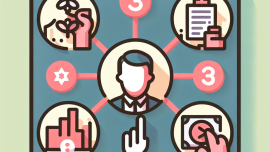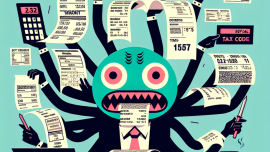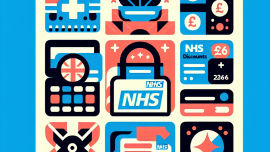
Pay Yourself First: Budgeting Trick That Makes Saving Effortless
Budgeting 101: The Simple Guide to Taking Control of Your Money
Hello there, friend! I’m Tom Bradley—your financially curious, slightly nerdy companion on this grand money journey. If this is your first serious attempt at understanding budgeting, Bravo! You’ve just taken the most important step towards a better relationship with your wallet. No confusing jargon here—just your average guy explaining money basics in plain English (with a dash of dry humor and some real-life relevance).
What is a Budget, Really?
Let’s cut through the fluff: a budget is just a plan for your money. That’s all. Not a punishment. Not a financial prison. It’s your map—it shows you where your money is going and helps you decide if that’s actually where you want it to go. Think of it as telling your dollars what to do instead of wondering where the heck they went by the end of the month.
Why Do You Need a Budget?
I used to think budgeting was for “people with a lot of money.” Spoiler alert: it’s actually more important when your funds are limited. Budgeting helps you:
- Pay your bills on time
- Save up for awesome things
- Get out of debt (and stay there!)
- Sleep better at night (seriously, it’s underrated)
It’s your roadmap to financial sanity. And trust me, sanity is golden.
Step-by-Step: How to Create Your First Budget
Step 1: Know How Much You Make
Start with your monthly income. That’s your take-home pay—after taxes, insurance, and whatever else your employer deducts. If you’ve got more than one income stream (go you!), include all of them. Side hustles, passive income, dog-walking gigs—add it in.
Step 2: Track Your Spending
If you’ve never tracked your spending before, this step might be slightly terrifying. That’s okay. You’re not alone. Pull up your bank account and credit card statements for the past 30 days. Categorize where your money actually went:
- Rent or Mortgage
- Groceries
- Utilities
- Subscriptions (Streaming anyone?)
- Dining Out
- Shopping
- Gas/Transportation
Now take a deep breath, and promise not to judge yourself. This isn’t about guilt. It’s about awareness.
Step 3: Set Spending Limits (Aka “Your New Rules”)
This is where budgeting starts to feel empowering. Look at your average spending in each category, and decide how much you actually want to spend in the coming month. Prioritize needs first—rent, food, bills—then sprinkle in your wants responsibly.
I like using what’s called the 50/30/20 rule as a simple structure:
- 50% to Needs: Rent, groceries, utilities, insurance.
- 30% to Wants: Dining out, streaming services, hobbies.
- 20% to Savings & Debt: Emergency fund, paying down credit cards, etc.
Of course, life’s not always perfect—some months those ratios flex. But hey, you’re in charge now, remember?
Step 4: Pick a Budgeting Method
The method you choose should match your personality. (Are you a spreadsheet wizard or a paper and pen purist?) Here are a few popular ones:
- Zero-Based Budgeting: Every dollar gets assigned a job. Income – expenses = zero leftovers. Satisfying for control freaks like me.
- Envelope System: Great for cash lovers—spend only what’s in the envelope for each category. Yes, physical envelopes (or digital, if you’re techy).
- 50/30/20 Method: We talked about it above. Simple and beginner-friendly.
- Apps like YNAB, Mint, or EveryDollar: These make tracking stupidly easy. If apps don’t scare you, go there.
Don’t overthink it. The best budget method is the one you’ll actually stick to.
Step 5: Revisit Your Budget Weekly (Yes, Weekly)
I know—it sounds like a lot. But here’s a secret: the people thriving financially? They check in regularly. Once a week is enough. Adjust for surprise expenses, see how you’re tracking, and give yourself a pat on the back for sticking with it.
Make it fun. Brew some coffee, play your favorite playlist, and call it your “Money Power Hour.” You’re the CEO of your financial life—act like it.
Common Budgeting Mistakes Beginners Make
If you’re just starting out, congratulations—you’re bound to trip up somewhere. That’s part of the learning process. Here are some rookie mistakes to avoid:
- Being too strict: Don’t forget fun money! A budget without joy is a diet doomed to fail.
- Forgetting irregular expenses: Car repairs, gifts, annual subscriptions—plan for them!
- Not saving at all: Even $10/mo is a start! Build the habit now.
- Budgeting once and never looking again: Your budget is alive, not set in stone.
Just remember: budgeting is a skill, not a one-time event.
What Happens When You Stick to a Budget?
You gain confidence. You stop feeling blindsided by bills. You start seeing your savings grow. And—wait for it—you start to feel in control. It’s not magic, just math. Combined with consistency (and maybe a spreadsheet or two).
After a few months, those tiny wins snowball. Suddenly, your emergency fund is real. You’re not living paycheck to paycheck. You can actually afford to take a vacation without maxing out your credit card. Who knew budgeting could help you breathe easier?
You’ve Got This (I Promise)
If you’ve made it this far, congratulations—you’re officially smarter about money than you were 10 minutes ago. Budgeting isn’t punishment. It’s empowerment. Whether you’re living off ramen noodles or sipping oat milk lattes, a good budget helps you do more with what you have.
And remember: practice over perfection. If your first budget blows up in week one, good. That means you’re trying. Adjust, learn, keep going. Your future self will thank you.
For more beginner-friendly financial tips and guidance, don’t forget to check our About Us page. Or if you have questions, hit us up on our Contact Page—I’d love to hear where you are in your money journey.
Until next time,
Tom Bradley
Your friendly neighborhood finance guide









Leave a Reply